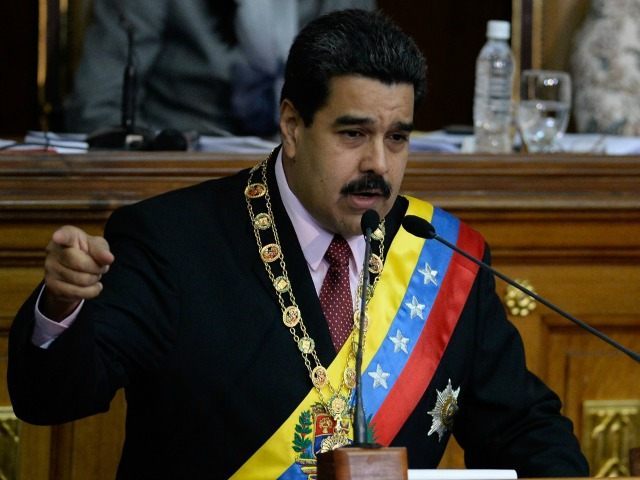A number of factions within Venezuela’s socialist left are seeking a way to remove President Nicolás Maduro, in a last-ditch effort to “save the Revolution” begun by late dictator Hugo Chávez.
According to a report in Venezuelan newspaper El Nacional, members of the radical Socialist Tide party are seeking ways to remove Maduro from power and replace him with a more competent, though equally left-wing, leader. Socialist Tide leader Nicmer Evans tells the newspaper that Maduro stepping down following three tumultuous years in office would “represent an ethical and exemplary exit because it would create conditions to articulate a Chavismo without trauma, preserve the body politic and make it easier to make decisions and transition.
For others, it is simply a matter of “saving the Revolution” from the hands of the wildly unpopular Maduro, whose has largely been blamed for the opposition Democratic Unity Roundtable (MUD) party taking over the National Assembly in December, the first time the Socialist Party (PSUV — not to be confused with Socialist Tide) has not been in control of the legislature in 17 years. Even within the PSUV, Argentine outlet Infobae notes, “it is an open secret that Chavista leadership is evaluating” Maduro’s ouster. Infobae suggests that leadership within the party has decided that “the only way to solve the crisis is getting rid of Maduro, as he does not act.”
To replace Maduro, the left would have to have a leader ready to take his place, else the opposition may swoop in on the presidency, as well. El Nacional suggests a number of candidates, the most well-known among these the governor of Aragua state, Tarek El Aissami. El Aissami’s name has surfaced in relation to a number of Venezuelan political scandals. After being arrested for attempting to smuggle 800 kilograms of cocaine into New York, two of Maduro’s nephews claimed they were attempting to sell the drugs on behalf of El Aissami. El Aissami is also believed to have granted asylum to six members of Syrian dictator Bashar al-Assad’s family in Venezuela when he served as Minister of the Interior.
These rumblings of dissent among Chavistas are not new. Infobae notes that Evans had previously been ousted from the PSUV, calling those who wished to see radical socialists out of the party “totalitarians.” Earlier this month, other members of Hugo Chávez’s cabinet came out to demand an investigation into Maduro’s leadership at the national oil company. Former ministers Héctor Navarro, Ana Elisa Osorio, and Jorge Giordani claim to have found more than $300 billion in crude oil revenue unaccounted for in Venezuela’s budgets of the past ten years. Navarro was also expelled from the PSUV after stating, “there are advisors misguiding the president, with the intention of ending the revolution from the inside.
The MUD party, meanwhile, has been demanding Maduro’s ouster since before their historic win in December. “Nicolás Maduro’s resignation is the first step towards democratic political change, indispensable for the social, economic, institutional, and moral recovery of Venezuela,” former legislator María Corina Machado said this month. Machado is no longer a legislator after being physically ousted from her office by Maduro’s government and doused in tear gas upon trying to enter her office.
The internal revolt among the Venezuelan left seems to have inspired an even stronger push to remove Maduro on the right. Speaking on the National Assembly floor today, NA President Henry Ramos Allup warned Maduro’s leaders that “there are three military groups conspiring and four PSUV groups forcing Maduro to resign.”
Maduro is facing simultaneous emergencies, as his economic policies have resulted in a complete scarcity of over 150 medications, ranging from painkillers to pivotal cancer and HIV drugs, as well as an overall scarcity of food. The National Assembly declared a “nutritional emergency” last week.

COMMENTS
Please let us know if you're having issues with commenting.